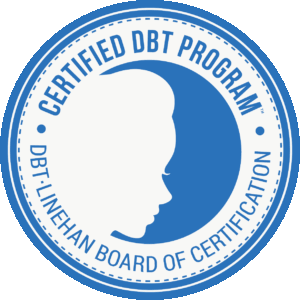In a world where adolescence can be turbulent and challenging, many teenagers face the overwhelming burden of emotional distress. For some, this distress manifests in the form of self-harm—a coping mechanism that, while providing temporary relief, can lead to long-term physical and emotional harm. Recognizing the gravity of this issue, counseling services tailored specifically for self-harming teens in Voorhees, NJ offer a beacon of hope and support.
Understanding Self-Harm
Self-harm, often misunderstood as a cry for attention or dismissed as a passing phase, is a complex issue rooted in deep emotional turmoil. It encompasses a range of behaviors where individuals deliberately inflict harm on themselves, such as cutting, burning, or hitting. Contrary to common misconceptions, self-harm is not about seeking attention but rather a coping strategy to manage overwhelming emotions that feel otherwise uncontrollable.
By enhancing our understanding of self-harm and its complexities, we can better support adolescents who are struggling with these challenges. It is essential to approach self-harm with empathy, patience, and a commitment to providing comprehensive support that addresses both the immediate behavior and the underlying emotional issues. Together, we can create environments where adolescents feel understood, supported, and empowered to heal.
The Role of Counseling

Counseling plays a pivotal role in addressing the underlying causes of self-harm and providing teens with constructive coping mechanisms. In Voorhees, NJ, specialized counseling services for self-harming teens are designed to create a safe and supportive environment where adolescents can explore their feelings, identify triggers, and develop healthier ways to manage their emotions.
Understanding and Assessment
First and foremost, counseling sessions are a safe space where trained professionals can assess the extent and underlying reasons for self-harming behaviors. Through empathetic listening and structured assessment tools, counselors work to unravel the complexities of each teen’s emotional landscape. This process involves exploring triggers, understanding the emotional pain that drives self-harm, and identifying any co-occurring mental health issues such as depression, anxiety, or trauma.
Developing Coping Strategies
Once the underlying issues are identified, counseling focuses on developing healthy coping strategies. Teens often turn to self-harm as a way to manage overwhelming emotions or to regain a sense of control. Counseling helps them explore alternative coping mechanisms that are constructive and sustainable. Techniques such as mindfulness, relaxation exercises, and cognitive restructuring are taught to help teens regulate their emotions and manage stress without resorting to self-harm.
Building Emotional Resilience
Self-harm is often a symptom of deeper emotional pain or unresolved trauma. Counseling sessions in Voorhees emphasize building emotional resilience and strengthening coping skills. This involves helping teens develop a deeper understanding of their emotions, learn to tolerate distress, and cultivate healthier ways to express and manage feelings of sadness, anger, or frustration. Through consistent guidance and support, counselors empower teens to navigate life’s challenges more effectively.
Addressing Underlying Issues
Effective counseling for self-harming teens in Voorhees goes beyond managing immediate symptoms. It delves into the root causes of self-harm, which may include family dynamics, peer relationships, academic stress, identity issues, or past trauma. By addressing these underlying issues in a supportive and non-judgmental environment, counselors help teens gain insights into their behavior patterns and make positive changes that promote long-term well-being.
Support for Families and Caregivers
Counseling services in Voorhees recognize the critical role that families and caregivers play in a teenager’s journey towards recovery. Sessions often include family therapy or parental guidance to foster understanding, improve communication, and strengthen family dynamics. Educating parents about self-harm, its causes, and appropriate ways to support their child’s healing process is integral to creating a supportive home environment where teens feel understood and supported.
Tailored Support and Therapeutic Techniques
At counseling centers in Voorhees, trained professionals utilize evidence-based therapeutic techniques to help teens navigate their challenges. Cognitive-behavioral therapy (CBT), dialectical behavior therapy (DBT), and mindfulness-based approaches are commonly employed to assist adolescents in understanding their emotions, altering harmful thought patterns, and building resilience.
A Holistic Approach
Effective counseling for self-harming teens in Voorhees extends beyond therapy sessions. It encompasses a holistic approach that involves collaboration with families and schools to create a comprehensive support network. By involving parents and educators, counselors ensure continuity of care and provide strategies for fostering a supportive environment at home and in educational settings.
Understanding and Acceptance
The journey begins with understanding and acceptance—both on the part of the teen and their support network. Counseling sessions create a safe space where adolescents can openly discuss their struggles without fear of judgment. Here, they are encouraged to explore the underlying emotions and triggers that lead to self-harm. Through guided introspection and compassionate listening, counselors help teens gain insight into their thoughts and feelings, fostering self-awareness and self-acceptance.
Developing Coping Strategies
Central to the healing process is the development of healthy coping strategies to replace self-harm behaviors. Counseling in Voorhees employs evidence-based techniques such as Cognitive Behavioral Therapy (CBT), which helps teens identify negative thought patterns and learn alternative ways to manage distress. Dialectical Behavior Therapy (DBT) is also utilized, focusing on mindfulness, emotion regulation, and interpersonal effectiveness. These therapies empower teens with practical skills to navigate intense emotions and challenging situations constructively.
Building Resilience
Resilience is cultivated through a combination of therapeutic interventions and ongoing support. Counselors work collaboratively with teens to build resilience—a crucial trait that equips them to bounce back from setbacks and navigate life’s inevitable challenges. By fostering a sense of empowerment and self-efficacy, counselors empower teens to believe in their ability to overcome difficulties and make positive choices for their well-being.
Addressing Underlying Issues
Effective healing addresses the root causes of self-harm, which often lie in deeper emotional pain or unresolved trauma. In Voorhees, NJ, counselors are trained to identify and address these underlying issues sensitively and comprehensively. By exploring past experiences, family dynamics, and environmental stressors, counselors help teens make connections between their emotions and their behaviors, paving the way for profound healing and personal growth.
Family and Community Support
Healing from self-harm is not a journey that teens undertake alone. In Voorhees, NJ, counseling services emphasize the importance of involving families and the broader community in the recovery process. Counselors work collaboratively with parents and caregivers, providing education on self-harm, offering strategies for effective communication, and fostering a supportive home environment. Additionally, schools and community resources are engaged to create a network of support that extends beyond therapy sessions, ensuring continuity of care and encouragement.
Breaking the Stigma
One of the significant barriers to seeking help for self-harm is the stigma attached to mental health issues. Counseling services in Voorhees aim to break down these barriers by fostering open conversations and promoting awareness about mental health. By creating a non-judgmental space, counselors empower teens to discuss their struggles openly and seek the help they need without fear of stigma or shame.
The Path to Healing
Healing from self-harm is a journey that requires patience, understanding, and professional guidance. In Voorhees, NJ, counseling services for self-harming teens offer a lifeline—an opportunity for adolescents to reclaim their mental and emotional well-being. By addressing the root causes of self-harm and equipping teens with the tools to cope effectively, counselors pave the way for a brighter and healthier future.
Conclusion
Seeking counseling for self-harming teens is a crucial step towards recovery and resilience. At DBT of South Jersey in Voorhees, NJ, our specialized services offer compassionate support and evidence-based therapies tailored to each individual’s needs. By addressing underlying issues and teaching effective coping strategies, we empower teens to navigate their emotions and challenges with greater confidence. Our dedicated team is committed to providing a safe and nurturing environment where teens can heal and thrive.
For more information on how our counseling services can benefit your teen or to schedule a consultation, please contact DBT of South Jersey at 1-856-625-6550. We’re here to help guide your family through this journey towards healing.




